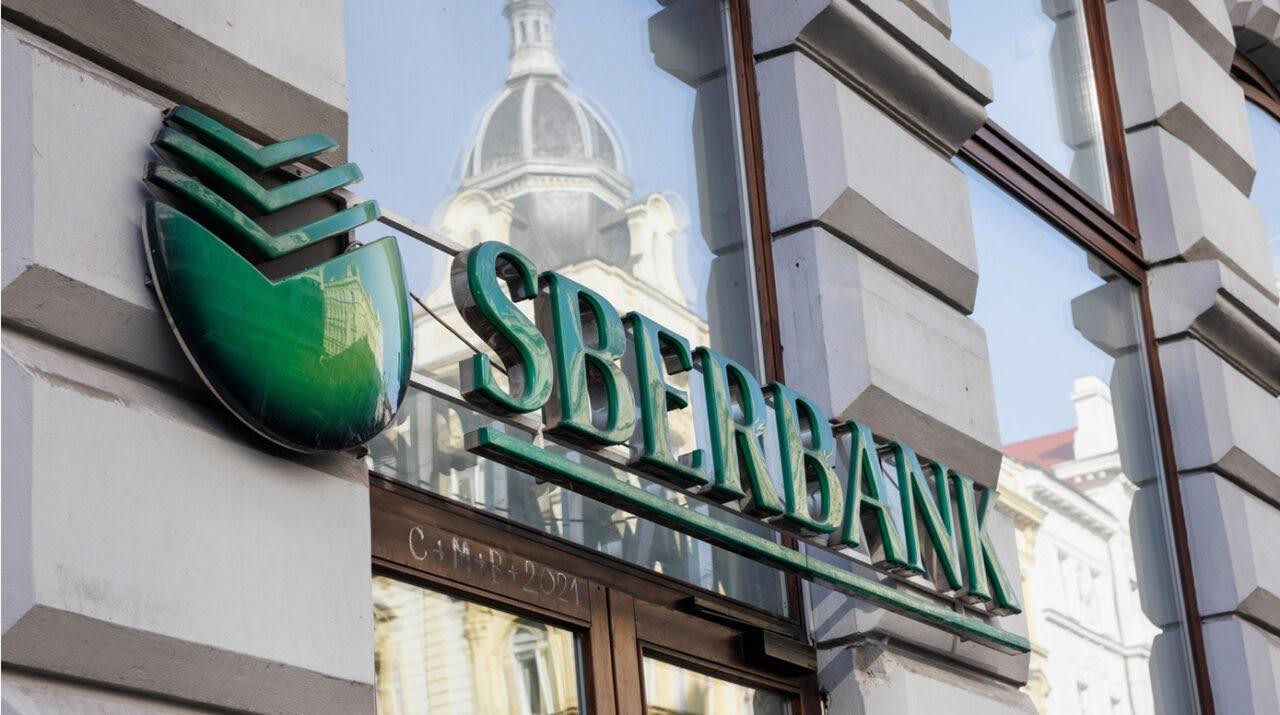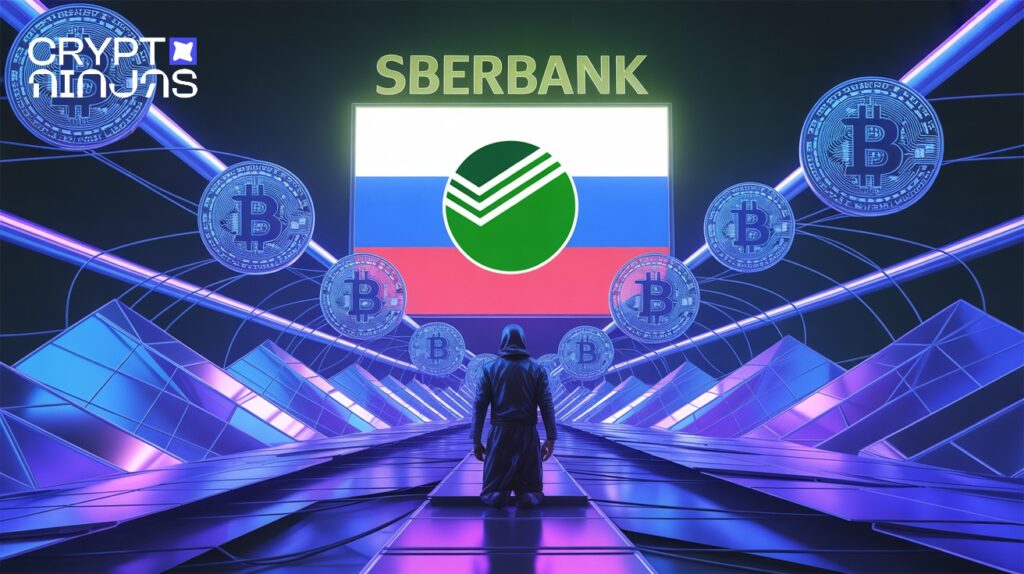Essential Highlights:
- Sberbank’s newly issued bonds will be denominated in rubles and may incorporate links to Bitcoin and the USD/RUB exchange rate.
- This financial product offers qualified investors a streamlined pathway to gain exposure to cryptocurrencies without the complexities of managing digital wallets or navigating cryptocurrency exchanges.
- As part of broader regulatory reforms, Russia is progressively opening up avenues for financial instruments tied to digital assets and cryptocurrencies.
The recent upward trajectory of Bitcoin and other digital assets, as observed by Sberbank-Russia’s largest state-controlled bank-signals a significant shift in the country’s financial landscape. The launch of this Bitcoin-linked structured bond exemplifies the integration of traditional banking with the evolving world of cryptocurrencies within Russia’s tightly regulated environment.

Learn More: Central Bank of Russia Considers Allowing Crypto Investments for Wealthy Clients
Sberbank Launches Bitcoin-Linked Bonds Amid Regulatory Evolution
As Russia’s preeminent state-owned financial institution, Sberbank is now offering a structured bond product that’s directly linked to Bitcoin’s market performance and the USD/RUB exchange rate. This offering is exclusively available to accredited investors and is settled in rubles, marking a notable step toward integrating cryptocurrency-based financial instruments into Russia’s heavily regulated banking sector.
Despite ongoing macroeconomic uncertainties and a year of institutional acceptance, Bitcoin’s value remains robust, surpassing $100,000 in 2025. This milestone underscores the currency’s resilience and growing importance. Sberbank’s latest product provides Russian investors with a convenient method to gain indirect exposure to Bitcoin, sidestepping the need to manage crypto wallets or navigate the gray areas of unregulated exchanges.

Understanding the Mechanics of the Bitcoin-Linked Bond
Dual-Asset Market Exposure Made Accessible
This innovative financial instrument hinges on two key factors:
- The price of Bitcoin relative to the US dollar,
- The strength of the US dollar against the Russian ruble.
The bond’s profitability depends on both indicators rising-meaning Bitcoin’s value increases and the USD gains strength against the ruble. Conversely, if either or both decline, investors might see reduced returns or even losses. This dual-market approach introduces an additional layer of speculation, appealing to investors who monitor global economic trends closely.
Importantly, the bond does not require direct engagement with cryptocurrency exchanges or wallets. All transactions are managed through Sberbank’s private client services, conducted in rubles, ensuring compliance with domestic financial regulations.
Exclusive Access for Qualified Investors
This Bitcoin-linked bond is not designed for retail investors. It is tailored for high-net-worth individuals and institutional entities that meet specific criteria under Russian securities laws. This restriction aligns with recent regulatory changes by the Bank of Russia, which now permits qualified investors to participate in certain crypto derivatives under strict oversight.
Russia’s cautious approach to cryptocurrencies has historically balanced innovation with regulation. The recent regulatory shift indicates a willingness to embrace digital assets within a controlled framework, reflecting Moscow’s recognition of investor demand for regulated access to digital resources.
Learn More: Russia Tightens Crypto Mining Regulations: What Are the Implications of the Latest Bans?
Expanding Horizons: Russia’s Broader Cryptocurrency Strategy
Sberbank’s Plans for Bitcoin Futures Trading
Beyond structured bonds, Sberbank is actively exploring the futures market for Bitcoin. The bank has announced plans to list Bitcoin futures on the Moscow Exchange starting June 4, in partnership with its investment arm, SberInvestments. This move positions Sberbank among the pioneers in Russia to facilitate regulated trading of crypto derivatives.

Preparations for this initiative have been underway at the Moscow Exchange, which has been engaging with local regulators to ensure compliance. The rising global interest in crypto-based financial products has driven this development, signaling a strategic shift in Russia’s approach to digital assets.
Strategic Regulatory Changes and Market Demand
Russia’s Evolving Crypto Policy and Market Dynamics
Sberbank’s structured bond is part of a larger trend in Russia’s financial sector. Over the past year, signs have pointed to a more receptive stance from authorities toward institutional involvement in blockchain and digital asset markets. While retail access remains tightly controlled, the government appears increasingly open to regulated financial innovations involving cryptocurrencies.
This shift is also influenced by geopolitical considerations. As Russia faces sanctions and restrictions on Western financial channels, developing domestic blockchain-based financial instruments could bolster the country’s economic resilience and independence in the long term.
Global Perspectives: Russia’s Crypto Bond Initiatives in Context
Sberbank’s move has garnered international attention, but Russia is not alone in exploring government-backed crypto bonds. For instance, New York City recently announced plans for “BitBonds,” municipal bonds secured by Bitcoin holdings. Mayor Eric Adams introduced this concept at the Bitcoin 2025 conference in Las Vegas, aiming to position the city as a hub for blockchain-powered infrastructure projects.
Unlike traditional bonds, BitBonds are backed by Bitcoin rather than fiat currency reserves, offering a novel way for crypto investors to participate in public financing. Although still in early development, these initiatives highlight a growing global trend of integrating digital assets into official financial instruments, signaling a broader acceptance of cryptocurrencies in public markets.

